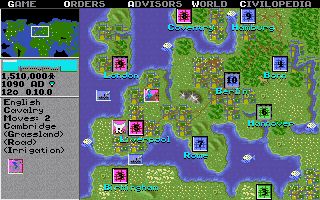Language does not exist…
Language does not exist…
not in the sense of
something we can touch,Language does not exist…
engineer, pass from hand to hand, feel the grain. Language…
the shared delusion is an illusion. We understand chocolate cake,
a concrete thing: we agree the broad idea
but only one of us recalls Paul, at two years old,
smothered in the stuff.
Less agreement with abstractions: my love
is not your love; and my sovereignty
doesn’t exist at all.
How much worse when we get to something you don’t know.
You mention that you like to go kayaking
but I have never experienced the sudden cool
of near ice water running from a paddle into my sleeve
or the semi-resonance of millimeter-thick fiberglass
rebounding from submerged geography.
Language does not exist…
although the dictionary says otherwise.
The words in the book of lexical lore
will claim to, with precision, pin a meaning on every
possible utterance. They do not and cannot;
Dictionaries do not exist…
Language isn’t definitive or declarative,
it isn’t even functional at heart. It’s metaphorical.
Let’s get high!
We can do that here on the hill,
with the stepladder,
and you are very tall;
and the guitar solo goes up and up;
and you've been promoted, by a higher power;
your salary is now so much,
but this meat’s off;
the electricity is strong;
your church is formal;
and your fashion sense is very sharp today.
All these things are someway “high”
but the only way in which three octaves above middle C
is like a piece of rotten meat,
is buried deep
in our psychology/neurology.
Language does not exist…
not as something fixed
which you can grasp with thought or pen.
Continual flux is all there’s ever been:
spellings, meanings and usages
shift beneath our tongues
like extreme sushimi.
You, I hope, understand me.
Shakespeare, however, would get me less
and Chaucer might think I was speaking
a foreign language.
I take my words back,
I take them back in time until,
somewhere maybe in the 9th or 10th century
there comes a point where they have no meaning at all...
...because language does not exist.
Not even in the other direction.
My words are of course
recorded for posterity, but after I die and as they age
what anybody understands fades out.
Until there comes a moment
when my great, great, great, great grandchild
—factoring, loneish in the interspace—
wonders what planet I was from.
If I was truly great,
people would update me
once per generation,
but we can't all be Shakespeare
—if nothing else Shakespeare's already done that.
So there that's us evolving once again.
Language does not exist…
Je suis un éléphant. I might say,
if I was French,
and an elephant. Those who are the sort
to understand French elephants would shrug
expressively
and wonder why I stated the obvious
but my words would be gibberish
to the differently linguistically endowed.
English
exists,to the differently linguistically endowed.
French exists,
and they’re langages…
but they’re not language itself, which does not exist.
English/French dictionaries, in particular, do not exist.
Language is a maelstrom, language is a storm.
People think they pin it down, control it...
define it;
but they may as well bottle the hurricane.
Grammarians will claim they can explain
and lay down every part of speech in grammar books.
Grammar books do not exist
and as for the people who write them:
I've never met one.
Language does not exist…
so set yourself free!
No ploddy, tetrapody emphraslement for me!
No momentary ding. Talk toboggan listen
all everness towards myself true wordy
and ultimatum infiltrate the thing
of do magnificence, superlative, and evermore unstopped.
Nobody can stop me doing this
and nobody can touch me for it...
because language does not exist.







